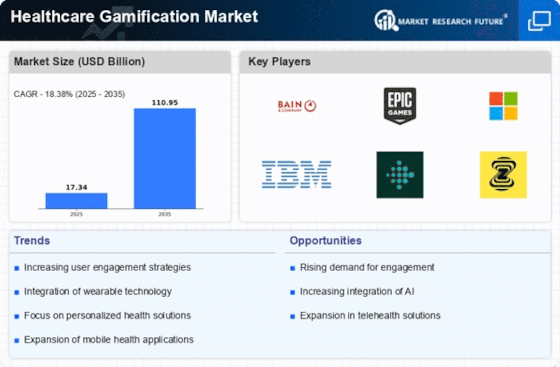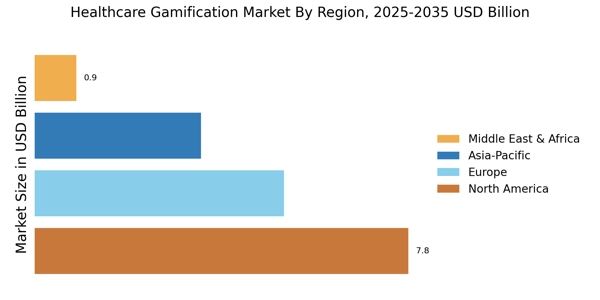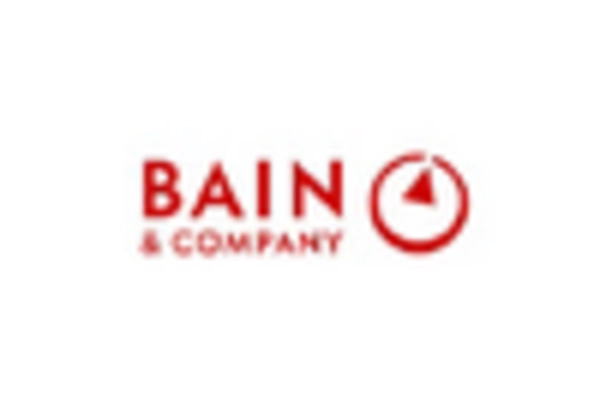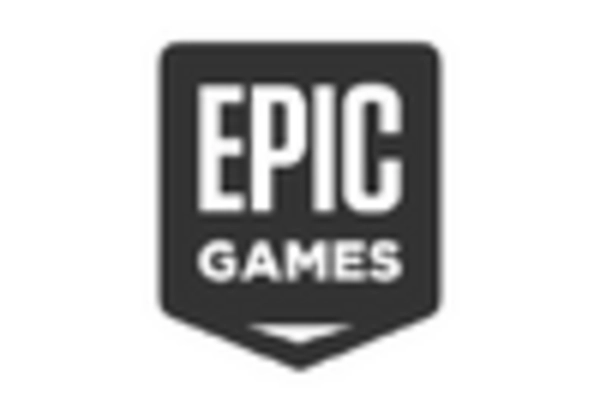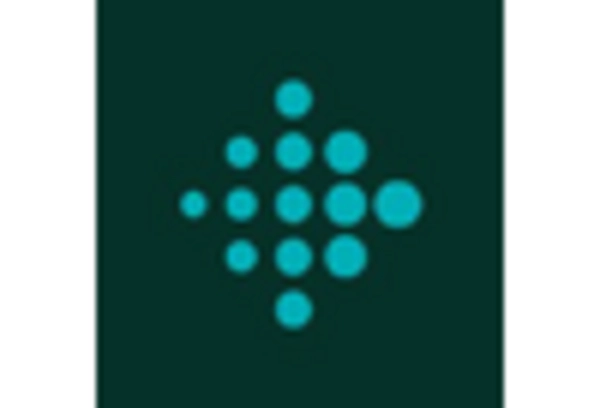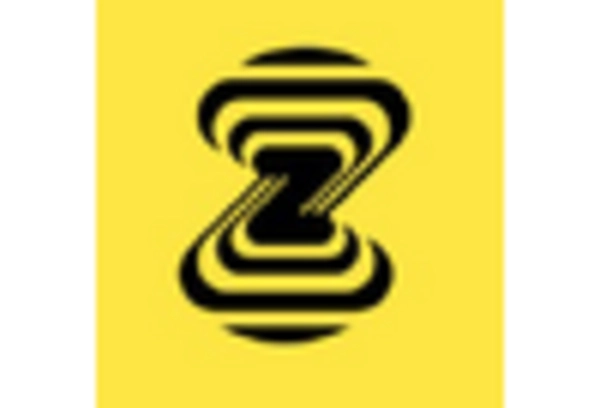North America : Innovation and Technology Leader
North America is the largest market for healthcare gamification, holding approximately 45% of the global share. The region's growth is driven by increasing healthcare costs, a rising focus on patient engagement, and advancements in technology. Regulatory support, such as the Affordable Care Act, encourages innovative solutions in healthcare, further propelling market demand. The United States and Canada are the leading countries in this sector, with a competitive landscape featuring major players like Microsoft, IBM, and Fitbit. The presence of tech giants and startups alike fosters a vibrant ecosystem for gamification solutions. As healthcare providers seek to enhance patient experiences, the demand for gamified applications continues to rise, solidifying North America's position as a market leader.
Europe : Emerging Market with Potential
Europe is witnessing significant growth in the healthcare gamification market, accounting for approximately 30% of the global share. Factors such as increasing digital health adoption, a focus on preventive care, and supportive regulations are driving this trend. The European Union's initiatives to promote digital health solutions are pivotal in shaping the gamification industry, encouraging innovation and investment in gamification technologies. Leading countries in this region include Germany, the UK, and France, where a mix of established companies and startups are actively developing gamified healthcare solutions. The competitive landscape is characterized by collaborations between tech firms and healthcare providers, enhancing the effectiveness of gamification in improving patient outcomes. The presence of key players like HealthPrize Technologies and Gamify further strengthens the market. "The European Commission emphasizes the importance of digital health in improving healthcare delivery and patient engagement."
Asia-Pacific : Rapidly Growing Market
Asia-Pacific is rapidly emerging as a significant player in the healthcare gamification market, holding around 20% of the global share. The region's growth is fueled by increasing smartphone penetration, a growing middle class, and rising health awareness among consumers. Governments are also promoting digital health initiatives, which serve as catalysts for market expansion. Countries like China, India, and Japan are at the forefront of this growth, with a burgeoning number of startups and established companies entering the gamification space. The competitive landscape is diverse, featuring local players and international firms. As healthcare providers in these countries seek innovative ways to engage patients, the demand for gamified solutions is expected to rise, making Asia-Pacific a key region for future growth.
Middle East and Africa : Emerging Power with Challenges
The Middle East and Africa region is gradually emerging in the healthcare gamification market, currently holding about 5% of the global share. The growth is driven by increasing investments in healthcare infrastructure, a rising focus on patient engagement, and the adoption of digital health technologies. However, challenges such as regulatory hurdles and varying levels of technology adoption across countries can impede rapid growth. Leading countries in this region include South Africa, the UAE, and Saudi Arabia, where there is a growing interest in gamified healthcare solutions. The competitive landscape is still developing, with a mix of local startups and international players beginning to explore opportunities. As healthcare systems evolve, the potential for gamification to enhance patient experiences is becoming increasingly recognized, paving the way for future growth.


